.
.
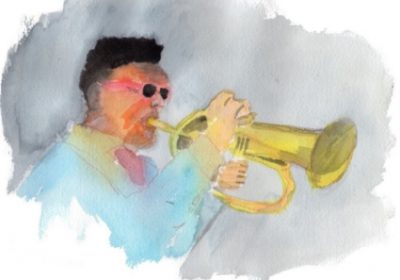
“Untitled” by Henry Dendander
.
…..The winter collection of poetry offers readers a look at the culture of jazz music through the imaginative writings of its 32 contributors. Within these 41 poems, writers express their deep connection to the music – and those who play it – in their own inventive and often philosophical language that communicates much, but especially love, sentiment, struggle, loss, and joy.
…..Submissions were received from nearly 100 poets from all over the world for this collection, for which I am humbled by and ever grateful. Such participation confirms to me that there is a desire among poets and readers for a publication devoted to the richness of this music and culture, and its inspiration for creativity.
…..I hope you enjoy…
…..Joe
.
.
(Featuring the art of Henry Denander. All images within this collection are copyright Henry Denander)
.
.
_____
.
.
And So Jazz Came To Be
In the bible of jazz, ragtime (with its syncopated, ragged rhythm
set the rules of the musical landscape that grew into jazz),
……..led to Dixieland (wild and wooly, and hot hot hot,
……..and brothers and sisters, that’s no jive, that is just
……..staying alive with crazy beats)
…………..which begat swing (which was no small thing
…………..making the off-beat central and making melody
…………..lure lovers onto dance floors, where music made
…………..love to them, and they made love to one another),
……..which brought forth bop (bop at the speed of sound,
……..cool bop, hard bop, bop that rocked harder than rockers rock,
……..bop that rediscovered how melody and rhythm could interrelate),
…………..thence came free jazz where all sound is possible, rules are
…………..negotiable, nothing is knowable, all is doable,
…………..freedom, freedom, all can be found and done, oh yeah,
…………..let the listeners catch up on their own, don’t stop and wait
…………..for them, let them take off the top of their heads and imbibe
…………..the music in great gulps and find the sense wherever
…………..or whatever it may be,
……..then fusion arrived with its wild marriage of jazz, rock, blues,
……..electronic experiments, melody cradled in rock guitars, drums
……..almighty and newly freed, basses and pianos set loose to blend
……..sounds and rhythms new to this world, trumpets and saxes
……..let music loose that reminded listeners of times past while charting
……..new and sometimes feral paths,
…………..and the future waits for the next unexpected paths to what
…………..jazz can be, will be, while never forgetting what it has been,
and thus jazz came to be, is, will be, ever and ever in the streets, clubs,
records, movies, and hearts of men and women uplifted and shifted
in what the world means to them, and we listen for what is new, and rejoice
in what has been and continues to be. Amen, brothers and sisters, Amen.
.
by Michael L. Newell
.
___
.
Jazz In Winter
There is no warming balm
like a lush and tawny riff.
The soothing halcyon psalm
chromatically uplifts
and slows the booted rush,
lingering as it drifts
through freezing city slush
and turned-up collar chill
and taxi blast, to hush
all cold harsh noise until,
between each icy blow,
with melody and trill
and dulcet honey glow,
like February streetlight,
it melts an evening snow.
.
by Felicia Chernesky
.
___
.
Life Music
I walk to work and spy
an old woman on the porch of a brownstone,
humming a song with an ethnic drawl
while she knits behind wrought iron rails,
a song I don’t recognize
from the sidewalk below,
a song lost moments later
to the motored groan of vehicles
on narrow roads.
As the day ends
and darkness etches retreat of light,
I pass her portico again
to hear the enchanting drone
from her silhouette above,
an indistinct sound which ushers
silent nightfall to calm the day.
Her melody follows me
down the slender sidewalks,
pass centers of bureaucracy,
to the great ocean ports
where I walk for hours upon the pavilions
and occasionally visit a tavern
where the old men relive a memory
in a verse of love’s defeat
or the greener grass of home,
the song mollifies their angst
with drips of melancholy.
I return to my room,
lie awake in my bed
and rehearse the meaning of those events
which shaped my day,
a day that began when the sun cleared
the steeples of industry
and flashed my eyes with a flood of light
to trigger the dust of a beginning
that arose from nowhere
and led to reminiscences of the song
I will create.
.
by Michael Keshigian
.
.
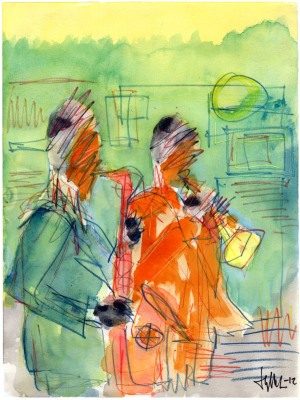
“Bebop in Green”
.
.
Staccato Flight
bluejays jazz the air
through long raindrops
…………..to the leaves
seen as
dashing attributions
of Ornette’s alto
…………..unencumbered
lesser feathers follow
.
by Terrance Underwood
.
.
___
.
.
Kind Of Blue
……………—Miles Davis (1959)
Those tunes sieved the cataract of voices
pummeling a shrapneled consciousness. Blues
turned skeletons into truths; five modals
immuned me to metronomes of collapse,
mercurial spans,.mourning’s corrosion.
Piano, doubled-up sax, snare, bass, and
muted trumpet (always trumpet, always
Miles emitting drowsed webs, palmed filaments,
space-between intricacies, heresies
of feeling) dismissed that lair’s garrison.
.
by D.R. James
.
.
___
.
.
Syncopation
I find myself talking about The Corner
and Aram’s Spa at King & Train; about
the guys and all the good times.
Like when Pumper would do
one of his crazy impressions
or when Tommy would shinny
up the pole and sit on top
of the red fire alarm box
wearing his goofy grin.
Joe Bazarian, chewing on
a dead cigar – hovering over
the day’s racing form.
There was Chunky,
Cool Chunky
Rock ’n Roll Chunky,
black pompadour slicked back,
the ever-present butt dangling
from the corner of his mouth,
a pack of Camels rolled up
in the sleeve of his Tee.
It was jazz…the blues….poetry…
all rolled into one melody,
a nightly syncopation —
of soulful, joyous dissonance —
a reawakening —
Coltrane cradling infinity
through his horn —
unexpected rhythms
beat out like Nance’s
trumpet on the A Train.
Each night reaching
a crescendo then fading
into Night Train’s diminuendo.
.
by Russell Dupont
.
.
___
.
.
A Meticulous Artist
…………….(for Hank Mobley)
He played as if Bebop hit the snooze button,
slept in late, and took the scenic route to the gig,
rambling through the door,
just in time for the downbeat.
His solos drifted around the room,
nudging their way through the cigarette smoke,
like a calm breeze painting the air.
A crafty intelligence lived underneath the casual exterior.
Motifs and phrases were stated, flipped inside out,
dangled and left behind,
only to return, five minutes later.
A tip of the hat, to anyone listening closely.
Hank wasn’t in a hurry.
Wherever he went, he took in the view,
and enjoyed the ride.
Along the way, he relaxed, thought, and planned ahead.
.
by Freddington
.
.
___
.
.
Miles Davis Comes to Lawrenceville
………………….for John Grochalski
You remember the blade of his horn
running that voodoo down, driving
the lank end of Butler St.
somewhere in the ugly weeds
of your twenties, the haloed refinery
tankers rampant on the river’s edge,
and Grochalski at the wheel while
somewhere out in the cracked night
a girl waited, swarmed in want.
The silence of those tankers, big and white
as Polish butchers, blood in the drab
folds of their skin, haunts this music now.
Mournful as the plain gray sentences
of ghosts, the steps shattered
snaking up our shared hills, we felt
the accumulated loneliness of parishioners
and widows exiting St. Augustine’s.
The sky was a grid straining to find
some looser language, some mute cry
absent of recrimination.
The cool shade of night drawing down
on our desire, one last exhalation
weary of the wish for redemption
and then, of course, the fade-out.
.
by Kristofer Collins
.
.
___
.
.
Hang Tough
Sonny Rollins is up on Williamsburg Bridge tonight
pushing the demons out of his soul through the curves
of his holy horn, scattering the river with twisted notes
like shrapnel of some unseen but necessary war.
While across the shadow of time and space Cesar Vallejo
picks through trash in Paris for empty bottles to sell
to pay the rent and mumbles in Spanish the words he holds
so dear, the words that keep the poems alive and well.
So then, and then again, and now, and forevermore,
the beaten are unbeaten. The artists leave behind
the censure of the past and climb the bridge where air
is thin or poke through trash to find the diamond.
We think we pass through time, but time passes through us.
And all depends on knowing how and when – to hang tough.
.
by T..S. Davis
.
.
___
.
.
Now That Our Hero Has Come Back
Another rainy
morning in Pittsburgh
drops like scalpels
no need for sunblock
not much to do at work
Frank said it was important to be bored
ok
if the world doesn’t end
I’ll go home having accomplished nothing
but this verse
and humming Bird’s solo on Ornithology
oh beautiful and everlasting chanty
in the empty vessel of America
just wish it was a slower tempo—
Lord does it matter
I have not made the world a better place?
.
by John Stupp
.
.
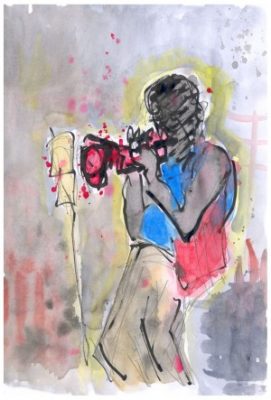
“Miles Davis, No. 3”
.
.
The Goods Of Jazz
brass
strong on bold
holding tight
stirring life
into listening
wanting souls
as night melts
city sounds
into black
and white
spreading wide
like blood spilled
the horn
of sass
beats the air
with fists
breaking chains
snapping out notes
like junk dogs
burning to bite
as the sweet
honey of
jazz
delivers loud
the goods
.
by Roger Singer
.
.
___
.
.
A Trumpet Break Through: Which Can Happen With Any Horn Or Ax
…………………………………….For: Dominic and Aurora Lewis
it’s tough
in jazz
to play better
as in doing
anything else better.
*****
while in high school
(my lips bled red
several times
on the silver of the mouthpiece),
just trying to reach
high notes on the trumpet.
*****
so, sometimes … when practicing
more & more & more
nothing inches forward …
*****
then one day, you hear
stay with it! stay with it!
it’s that great gnarly
sweat of jazz … when you discover
a certain sound
and know there’s a magic in this.
*****
if you once
play into a“break through”
you will never
stop practicing,
and believing in yourself:
to play better
for ever.
.
by Alan Yount
.
.
___
.
.
Tenor Jam
……….for Sonny Rollins, who turns 90 in September
I’m not going to tell you
about the sideways snowfall
of this moment, the wipers
repeating two syllables
that sound to me like Slavic
gibberish of some sort. There’s
no tune I can hear in that,
but yesterday I opened
up a sax case dressed in dust,
after years, the one that holds
my Conn 10M, marked also
“T” which means transitional,
made in nineteen thirty six,
the one called “naked lady”
by players, so named because
the guy that did the etching
engraved a tiny nude bust
of his beautiful young wife
on the flaring of the bell.
Like lots of older saxes,
it is heavier than hell,
and was cold and slick to touch
when I picked it up again.
It was like hugging a seal,
just without the wriggling.
In thirty six, Lester Young
was twenty seven, maybe
played a horn quite similar
to this one I am holding,
clunky as a sewer pipe,
but out of which danced lightly
airborne notes like popping corn,
birdless feathers in the New
York breeze. I never could play
tenor saxophone worth spit,
but did ok on alto,
better yet on clarinet,
and I’m not writing here
about one warm Friday night
I got to play in Harlem
and for once in all my years
did not feel like old white bread,
nor will I wax romantic
about Dexter or Stan Getz
or Young or Coleman Hawkins
now up in heaven, playing poker
while their tenors stand nearby
in the corner, waiting for
some warm air moving sideways.
.
by Joel Glickman
.
.
___
.
.
St. Louis Blues
………………..(for Art Tatum)
Tiger Rag
blends into Tea For Two —
no rhyme intended
but it’s the St. Louis Blues.
Strange as it seems
My Sophisticated Lady,
the love that we had —
It’ll Never Be the Same.
When A Woman Loves A Man
you Shout — You Gave Me
Everything But Love.
Liza – This Time It’s Love.
I Would Do Anything For You,
my Beautiful Love
but After You’ve Gone,
I Ain’t Got Nobody —
only Stardust
.
by Russell Dupont
.
.
___
.
.
Barry Harris At Carnegie
………………………….for Mike
White socks
right leg dancing happily
Hands independent of mind body soul
hands moving, creation: the music
Body relaxed, disciplined
posture formal, even severe
Cool, direct, dignified:
“I wanna be happy”
The hands, the hands,.the hands!
Bright intelligence.
………………………Pure pleasure.
………………………………………………Jazz.
.
…………………………………………………NYC
……………………………………………………………………July – August 94
.
by Phil Linz
.
.
___
.
.
Miles And Miles
His mellow moods
were all emotion—
love songs,
heart melodies
that we could dance slow
or cuddle to— feeling
filtered through
intellect.
Later,
mood morphed,
anger exploded,
rampaged, ranted.
Frenzied feeling
flared, blasted
the tops of our heads
off.
.
by Phyllis Wax
.
.
___
.
.
Roy Hargrove R.I.P.
Roy is baby brother, only
he found peace in notes
black like him
miles without the drama
more like lee morgan or
brownie
st. peter, could never swing
so laid back
to roy, trumpet playing
is like blowing
bubbles
he’s the little boy in
the corner
who waits until everyone solos
then calmly comes in
and puts an exclamation point
on the night
rest easy, groovin with
your horn of
plenty….
.
by Erren Kelly
.
.
___
.
.
I Don’t Stand A Ghost Of A Chance
lament you
poor ol’ Clifford Brown
the sober jazz trumpet
who blew clean
grease
while Satchmo got stoned
and Coltrane got HIGH
see it
rainy turnpike night through Bedford Pennsylvania
the asphalt and the cars all wet clean and coruscating
Clifford knows he must be dreaming in backseat lull
while bandmate’s wife takes wheel
poor Cliff Brown that sober horn
Dead in Bedford
25 in backseat mauled
by wet road kisses and guard rail embrace
3 Dead in Bedford
Rich Powell, Cliff Brown, and wife Nancy
Coltrane went on a few years
to 40
the needle catching up to him years after he had kicked it switched
to whiskeysauce
Satchmo died of a heart attack on the precipice of 70
after all the years of reefers made his voice sound like that
and the road robbed us all out there that night in Bedford
no joy in June spring 1956
for the cleangrease horn of sober Cliff Brown
silenced long before any righteous time
but still its echoin’ out that timeless tune:
immortality
immortality
i-mmortal-i-ty
.
by Nathan Tluchowski
.
.
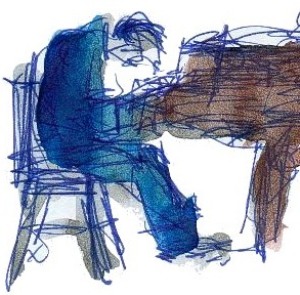
“Bill Evans, piano”
.
.
Piano Fingers
thick shades
night dark
hold off
the curious
trying to see
the diamonds
behind the
reflections
where
he stretches
songs over
unnamed
long roads
while clouds
wept
for the
stories
from him
where years
melted
down the candle
of a life
in song
wherever he
went
.
by Roger Singer
.
.
___
.
.
Sunlight Travels Eight Minutes To Reach Us
……………………………After Caroline Cabrera
A lot can happen in eight minutes
it’s an eternity
a dog can hold its breath that long
or snore
until the sun wears out
c’mon man
chew a bone or something
reward me
I’m writing this in a laundromat
and
have work to do
unlike the sun who is worshipped
but indifferent
who is loved
but indifferent
who has no shame
unlike dogs and underwear
if you train them
they can play the piano like Art Tatum
.
by John Stupp
.
.
___
.
.
Erroll Garner At The Ace
……………………………for Cassidy Lee
From a third floor window I imagine
I can almost see the cracked black
& white tile welcoming Penn Avenue
to the long-closed Kappel’s Jewelers.
Behind the dirt-caked door I see myself
blond as the afternoon sun and holding
my grandmother’s hand. It’s her day off
and she’s come for her paycheck. I’ve forgotten
their names but the manager’s sweet cologne
is always there, like the feel of a fresh bag of hot
cashews from the stand inside Sears on Highland,
floating through my memories. Hard black hands
bent the bands of wedding rings and tapped
the names of young brides into the gold until death
they part. Like the sound of Erroll’s piano, a copy
of Gemini spinning gorgeously on the turntable,
that hard, bright music of metal upon metal
is an echo of the harder things to come. My wife says,
Frank Lloyd Wright as the claw-foot tub fills
with hot, clear water. A small Clyde Hare photo
of three women sitting on a bench is there
above the bottles of gin and whiskey and soda.
The sound of that too, the rushing, pounding water
is a rough surface across which Garner glides
like we glide down to dinner counting
the Teenie Harris prints as we go. Here’s one
of Roberto Clemente and his beautiful boy.
And you are my beautiful boy. Here is the world
of your father, this world now gone. The August heat
of East Liberty is different now. You’ll never feel
it this same way, your legs tanned and sticky
with sweat, small hand tight in the grip
of your grandmother’s, and all the faces on Penn
a mystery and wonder like all lives everywhere.
Now I’m bare-assed and high above the city,
that lost land lovely and dirty and sad
in the deep summer humidity. The sound of a piano
worked by Pittsburgh blood clotted upon the dying
breeze and something like a bird hard at the job
of survival and happy as hell for the chance
at this new world.
.
by Kristofer Collins
.
.
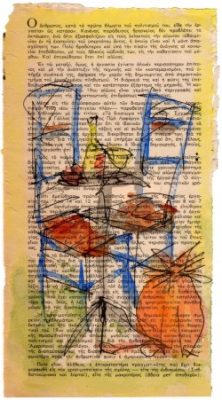
“The Table is Set”
.
.
Good Luck
It was his great good luck
not to have had an expensive education
nor pull nor place nor privilege at all,
but that he, living alone, in ’98,
should be working for Murphy’s,
a small firm in a small country town,
buying and selling musical instruments,
which he could play, restore and love,
knowing the wise melancholy of the alto sax,
of soul and swing, and that he should, that year,
meet Rose. She,
living with two burly Labradors
and her garden’s swarm of tits and starlings,
in a stone-walled cottage, smudged with ivy,
would, when he played blues to her,
close her eyes, smile, tap her foot,
say, Yes, yes.
.
……………..First published in Roundyhouse (Wales), 2012.
.
by Robert Nisbet
.
.
___
.
.
Coffeehouse Poem # 442
a tall girl walks in her
long legs
are all the sunshine
i need on a grey
afternoon
her legs are as long
as the jazz solos
i listen to on
old school
records
she would be a perfect
jazz tune
one that takes it time
and never rushes
so that the listener
can appreciate the
vibe
the groove, as red
as her hair
.
by Erren Kelly
.
.
___
.
.
LB
Fiftieth anniversary of when playing a dulcimer,
she opened that apartment door for me on one of those mid-January (nineteenth to be exact)
cold dank drizzly dark depressing early Sunday Berkeley evenings
wearing her forest green turtleneck, Christopher Robin lockets plus warmest of smiles.
Despite driving down from Stanford with much dread not having prepared
for med school tomorrow — I knew my heart was home.
Box of chocolates lying together next to roaring fire, we imbibed Nina Simone sing
I Think It’s Going to Rain Today*.Morning time, imagining a new future life magically
dawning, each of us forwent class for croissants at Regent and Durant’s favorite corner bakery.
First stop back in Palo Alto detoured to drop by this ridiculously suddenly ex-girlfriend
to let D know though I still had great affection, something happened last night,
sadly it’s now over but keep both Harvard rings I think you love more than Ger.
Half century later, the week before our special day,
when without any need of foreplay I asked what I should plan, without hesitation my bride
replied, “Make a fire, put on Nina Simone, then we’ll make out!”
……………………….* composed by Randy Newman
.
by Gerard Sarnat
.
.
___
.
.
Fusion
She dug jazz,
he leaned classical,
yet when they started to play,
they quickly found a groove.
Piano keys and brass, a standing bass and bow,
they played on through the night.
It was all improv as they headed toward intermission
Once back in session, they found their groove again
in adagio and double time — block chords and allegros,
no matter the rhythm, they hit all the right notes.
Fusion was how they described the sounds they made that night.
Fusion kept them together, the name they bestowed upon their child.
.
by Dan Franch
.
.
___
.
.
Love Letter
…………………for Bette
The music coming from the barn sounds like Bill Evans
so these sheep may safely graze with Scott LaFaro and Paul Motian
at the Vanguard
the sheep must have musical hearts under coats suitable for 7th Avenue
now in a corner of a Pennsylvania field
wind pierced and bleating
I think
love must be like this
the sheep rubbing together like nickels
the farmer with warm hands
and a cigarette
.
by John Stupp
.
.
___
.
.
All I Could Do Was Cry
As stories crossed the screen,
Etta James sang
“All I Could Do Was Cry.”
Chapter after chapter,
I would lose him again,
and he would lose his lovers.
Some said goodbye,
others perished—
either by accident,
childbirth,
or assault.
Each woman,
different and similar—
each woman had him,
each woman stood in for me.
Paragraph after paragraph,
he lived on.
Revenge was telling me,
Have him die,
save his exit for the end.
But like Etta,
I still loved him.
Unlike the song,
absolution found love
in loss.
.
by Patricia Carragon
.
.
___
.
.
I Need A Haunting
He has passed to some other place
wherever he has gone I long for his embrace
I can no longer reach out to touch his face
I need a sign, a caress of breath on my neck
A whiff of a Camel cigarette, a riff from his cornet
His unseen hand wiping away these tears
A gentle voice of loving words only I hear
I need a haunting to lay me down to sleep
Sheets that are warm because he is here
Unseen arms holding me tight helping me
get through the night, my slumber no longer
restless, tossing and turning, but deep
Feeling his smile when I awake
I need him to haunt me, what will it take?
.
by Aurora M. Lewis
.
.
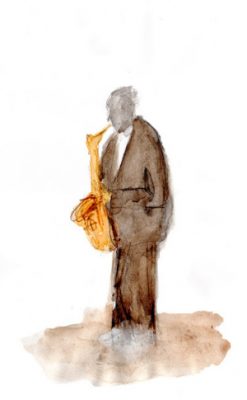
“Untitled”
.
.
Blue Train Scenario
…………..-a companion to John Coltrane’s Blue Train
She whispers down the length of the swaying bar car.
Elegantly upright.All hips and heels.
She runs soft fingertips over the eraser end
of her pencil skirt, as she slides
onto an arrowhead swivel stool.
Crushes orange embers—
slim, continental cigarette
in clean, cut glass ashtray.
Threadbare men in equally desperate suits,
begin to hover like the flies to honey
mama warned her about.
It’s too much—this unwanted aggravation.
She looks to the barkeep, who nods,
begins to pour, mix. He hands her
a Tom Collins adorned with requisite Zadar cherry,
rolls his towel. She takes in the first sip
with her deep, brown gaze.
The bartender SNAPS the air amidst
the unwanted, musky swarm. They disperse,
but she knows they’ll return
moments later; those intoxicated
with either alcohol or confidence. Shoo fly,
she signals, with a double flick of her free wrist.
Individually rebuffed, they all disperse, except
for a middle-aged mouse of a man
with weather-beaten fedora and wispy moustache.
He leans in, attempts intimacy,
as if she has cleared a path just for his advance.
Opening his mouth, he releases a sour vapour,
reminiscent of too many White Russians.
The bartender sees her recoil. Wispy does not,
believes her enthralled by his circuitous reverie.
Catching her eye, the bartender tilts his head.
She repositions before the towel lashes out,
removing Wispy’s hat from his greasy dome.
With a squeak, he disappears after it
into a dim corner booth. She smiles. Bartender winks.
She finishes her drink, orders another.
Palms a twenty across the burnished walnut bar,
glossy nails reflecting overhead light.
He returns with her drink; deadpans
the bill back across the slick surface.
The cascading warmth
of an adorned, second Tanqueray
soothes her frayed nerve-endings at day’s end.
She surveys the clacking compartment
of ill comportment,
takes a final swirling mouthful, and stands,
checks for hints of embarrassing static.
Surreptitiously, she takes the barkeep’s idle dish rag,
twists it, flicks her wrist;
sends the bereft bill sailing toward the bartender.
He catches it, and the cloth
which follows the payment’s lead.
Tippers never accept free drinks—especially
those attached to questionable intent.
.
by Jordan Trethewey
.
.
___
.
.
Bewitched, Bothered, and Bewildered
I’ll sing to him, each spring to him – And worship the trousers that cling to him -Bewitched, bothered, and bewildered am I—David Gedge, from the musical, Pal Joey, sung by Ella Fitzgerald.
Behind a newspaper,
a fat man in a trench coat
camouflaged his peccadillo
for a pretty damsel
to take a peek.
Neither bewitched by
his slab of meat,
she ignored it.
Momma told her
to keep her mouth shut,
hold on to the pole
until the doors open
at 77th and Lex.
Men weren’t the new sensations,
but after a few beers,
the fine symmetry
hidden in Joey’s trousers
beguiled her.
Being oversexed
had its drawbacks.
Too many pints
covered up his flaws,
and the morning after
gave her a headache.
The right and left sides
of her bed
looked tired—
her wild night left alone
on disheveled sheets.
At work,
she watched his eyes
travel up skirts.
It bothered her,
but men were boys
in snazzy suits.
Genitals ruled
the nature of the male beast.
The lion couldn’t roar
without constant practice
in broken trust.
Over the past few days,
her sleep cycle changed,
thoughts about her pal, Joey,
and the next few years.
Booze had its limitations—
a temporary solution
for her bewildered life.
He lost his job
by the HP printer—
Hormones on overtime
with the boss’ secretary.
He couldn’t pay his rent
and demanded to stay
for a night or two.
His attitude,
less than charming.
She refused,
slammed the door
in his face.
Her body and heart,
antiseptic from wisdom,
learned from mistakes.
She poured
a glass of brandy,
asked Alexa
to dim the lights,
play a show tune
to end the night.
.
by Patricia Carragon
.
.
___
.
.
Misty Roses
Tim Harden may have been
the saddest man to ever live.
Died down under the flow
of junk into veins,
that sort of final gurgle
where what makes a man
a man gets drowned.
That is not what made him sad.
Sad maybe that his voice was never
enough to float him out of his sorrow.
That’s part of why he sailed his veins anyway.
There is the back story of how Hardin,
thieving to fill his arm, fell in love
with a rich man’s daughter in Baltimore.
Came clean for years. They had a son
named Damion that he wrote a whole Suite for
before the rip tide raked him back in.
You have to be alone to listen right
to the sort of tender bends
Hardin wove through his tenor.
You have to sit with it
the way one sits all afternoon
rocking on the deck of a small schooner
roped to the dock waiting for repairs.
Sit and listen as rigging jingles in a wind
that could carry anyone away through
squalls and dawn-drenched tides.
Carry anyone as far away as one can go
but where some hearts feel that,
like the sea around them and the veins
within – no matter where, how –
they will just continue to circulate,
weave and pump tonal variations
of the same damn oceanic grief
in some inescapable, minor chord.
.
by Ed Ruzicka
.
.
___
.
.
A Film About Miles Davis
Last night saw a film on Miles.
Naturally, I found myself beguiled by Miles;
Learning some, earning much
About a damaged individual who touched the world;
Who burned for music
(Seemed to me that girls and women were his muse,
He, who reigned,
But they, the ‘bucker-uppers of a plagued, tormented genius).
Oh yes, learned, confirmed:
Treating gigs as practice,
Performance as a wormhole
To lose the blues that come from fear:
Ways to hear
………………………cliches,
Bad intonation, phrases weak,
Shut one’s ears to chairs that squeak,
Grand piano with bad touch; much more…
Aware of sound through speaker, mike too far, too near…
Most of all, to love the public that sits there
To see, to listen and to share,
Who look upon me as a copybook.
I feel loved before a note!
Within his greatness lay the hubris.
But within, as said, the genius.
Flaws of distrust, paranoia, dormant/ triggered
………………………………………………………………….by annoyance;
Introversion’s muted horn.
He, the frightened, corned lion.
And those women!
Most of all I came away with honesty;
The weediness of middle ground
Of which, I know are sides of me:
A waste of time and energy.
One needs to be more ballsy,
Even if one is a graceful ‘she’.
Oh, sad Miles,
Even when you altered styles,
Hard, demanding all the while;
Cars and clothing, pot, cocaine – even then
The core of you,
The red line constant – running through
Was puzzlingly robust and true.
Falling down, then standing up,
You’d come back new, a boxer* pup!
Life catches up. Miles had a stroke.
Sixty-five’s no age to go,
We all were left a ‘kind of blue’.
Fast Ferraris, razzmatazz
Flashy flesh… jazz’ed was not worth…
Jazz’ed did not last.
.
by Arlene Corwin
.
.
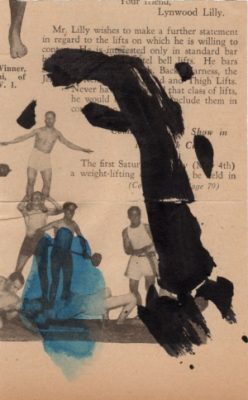
“Found, No. 3”
.
.
Blues
It’s hard for him to stay positive
when he has to face bullying
from his neighbors and the city authorities,
but still, he manages to drop a line or two
to make my day better.
He listens to blues,
and he wears the blue worker’s overall
every day and almost everywhere
since it’s the perfect outfit
if he’s fixing a car,
hauling the waste
– the others have created –
from place A to place B,
or if he’s maintaining his property
which is the sanctuary of old trees,
moss, and lichen.
He’s a good guy,
and it’s hard for him to stay positive
when he has to be on the run almost weekly
to avoid the aggressive acts of his neighbors
and the oppressive words of the city authorities.
I’m listening to blues,
and I’m trying to come up with something
–many things –
to make his day better
and to turn his attention to jazz.
.
by Paula Puolakka
.
.
___
.
.
Atom Leaves
A four-year-old boy runs, screaming.
The walls of railroad rooms
in the Jersey City apartment,
built circa 1910, shudder and shake
with his bellowing.
“AAHH! ATOM LEAVES!” He screeches
in terror, thinking that the atom leaves
are coming for him.
The boy was me. The lovely melody
“Autumn Leaves” was playing on my
parents’ Victrola.
Every time I heard those descending piano
notes played by Roger Williams in a
collapsing lilt, the horror struck me, and
my fear was inconsolable, and I ran wildly
in futile hope of escape.
I suppose I had heard of the atom bomb,
and my four-year-old brain married
atom bombs to Autumn Leaves in those
crazy 1950s.
What do little children fear today?
I don’t know.
But perhaps it is just as horrific as the
thought of “atom leaves” falling
on a small boy’s head.
I like to think not.
I like to think we’ve advanced
from those Cold War days.
Perhaps. Perhaps not.
.
by R. Bremner
.
.
___
.
.
Send out the Clowns
First we heard them down the corridor
………Phoebe and I, squirreled away in her secluded room.
Don’t let them in, she shrieked.
………Down the hallway the trio troubadours were banging and clanging,
………flipping and flopping,
………the red noses and pink polka-dotted cheeks of them in blue-green suspenders
playing tambourines, the flippedlyfloppedy trio troubadors
………’n signing opera ‘O Solo Mio’ and clickety-clacketting
………in wooden-heeled cowboy boots and oversized shoes,
………they inched closer, wide-eyed, slit-mouthed, oh no,
they were dancing and prancing,
swinging and sashaying up to her double-glass door
………smiling and gesticulating, chuckling and waving.
Don’t let those clowns near me,
………Phoebe pulled up the covers to her chin
………but they were waving and tapping and banging and clanging away
the tambourine trio, one woman and two men, frolicking,
………singing and tooting a horn now, the noise of ten
the glass doors slid open, Phoebe sank into her bed
………Send out those clowns!
In they glided, Phoebe screamed
………they were banging and clanging, one tooting a little horn,
………tapping and rapping, hitting the tambourines on their hips,
………swinging and swaying
………dancing in circles too
and jumping and singing and pinching and slapping each other
………Elvis’ sprang in the air from their lungs.
Phoebe sprang upright in her bed,
………send them away, send them away
while they sang ‘Blue Suede Shoes’ till Phoebe shrank again in bed and cried.
Suddenly the music stopped
………and they waited with downturned grins and real tears
………and clambered softly on their tambourines
………and watched her face and turned to me
and Phoebe shouted, tell them, Mom, tell them!
………and they fixed their daze at me, their hands hanging in mid-air
………tears mixed with red, pink, white makeup into streaked warpaint.
I held Phoebe’s hand in mine,
Tell them, tell them, Phoebe pleaded and pulled her covers up.
So I looked at the trio tambourine clowns right in their over-outlined, ………pigmented eyelids
………right in the streaked war-painted faces
right in their red plastic noses
—didn’t pretend to smell the white carnations on their red lapels—
thank you, Ms and Mr Tambourine Clowns,
I inhaled and exhaled
thank you, my chest expanded
— for— for frightening my daughter
more than her own illness.
You can go now.
.
by Julianne Di Nenna
.
.
___
.
.
The Inflated Tear
This orb this sphere this inflated tear
hearts filled to the limit
tenuously expansive
weightless with the wait of waiting
weighed down by the ways of struggle.
It started in a simple tear
streaking a cheek.
It began absorbing
absorbing the deaths of innocents in war zones
absorbing illness both fatal and debilitating
absorbing violence within families
within communities
and the tear grew.
When the policeman shot the black teenager
the tear grew
when the sovereign citizen shot the policeman
the tear grew
when the children were turned away
the tear grew
when the Ebola rose up and took our families
the tear grew
when the Boko Haram rose up and took our families
the tear grew
with each atrocity
each painful image
each intolerant web comment
the simple tear grew
and hoped against vague possibility
surface tension could stand the strain
the strain of the pain
and the tear grew
bigger than the cheek
bigger than the crier
bigger than all of the problems from Gaza to Ferguson, from Nigeria to Guatemala,
from Columbus to Syria, from Myanmar to Brazil
and the tear sat there
.
by Michael Vander Does
.
.

“Henry & William”
.
.
Edge of Time
My body isn’t aligned the right way;
it’s as unfaithful as a Ouija board.
My metal rolodex spins by itself
when I approach, positive spine
to my datebook’s ornery negative.
I’ve never heard a joyous baritone
sax. Brass, polished into submission
by jilted lovers, harbors the tears
dripped in the coveted molds.
I despair as if music brought me to
the bleak edge of time, to this little
stinkbug caught between my thumb
and forefinger, waiting.
I was supremely innocent before
turning into a grain of sand, now
the moon’s ghostly shade blankets
this yielding misty forest,
my home, forever.
.
by Robin Ray
.
.
___
.
.
We Carry Our Past With Us
Years drift past
barely afloat in quiet
waters of retirement,
yet my mind is cluttered
with landscapes recalled
from more than a dozen
countries on five continents;
I hear traditional musical strains
and refrains from the British Isles,
the Middle East, Central Asia, the High
Andes, Mexico, Estonia, Rwanda,
Uzbekistan. I remember Bulgarians
playing Miles Davis in a bar in
a hotel in Abu Dhabi, a jazz festival
in Tallinn with Dixieland bands
and wild freeform modernist combos,
a Russian pianist in a Tashkent
restaurant creating elegant piano
stylings of Paul Simon in the same
room where a Russian piano/violin duet
mixed Oscar Peterson with Israeli and Turkish
folk songs. During the restaurant’s closing
hours, a Russian Gypsy played
wild guitar and harmonica accompanied
by an Israeli woman who had
serious vocal chops. The duet
played Israeli folk music, bluegrass,
Creedence Clearwater Revival, blues,
Gypsy dance tunes, Irish airs and Russian
folk music. On one occasion in La Paz
I discovered a traditional Aymara group
of old men playing charangos, quenas,
and rondadors in concert with young
Aymara rappers while middle aged
listeners swirled in group dances.
I encountered Scots pipers and singers
in a park in Estonia, Estonians singing
Harry Belafonte in Old Town in Tallinn,
and bagpipers in Jordan outside Safeway
who sounded Irish but were traditional
Jordanian pipers. In Rwanda, choral
church music filled Sunday streets.
No matter where I am, no matter
how active or sedentary, my mind
is filled with movement and sound
that never disappears. My present
is ever and always decorated
with sounds and events from my past.
.
by Michael L. Newell
.
.
___
.
.
It Just Is
When first she strolls on stage in her easy, arabesque poise, she prods her back-ups,
“Relax, gentlemen, this isn’t rocket-science, it’s simply a song or two.”
………..Her agent, Sam’s words come back to her. “Not soft at first, Lea. Grab ‘em on
the first notes, and they’ll stay with you.”
………..The sax is deep and leads off. The drummer whisks a response.
…….A few chords from the piano call to Lea, it’s time, girl,
………..and she begins straight up with bravado,
…….pulling in her audience with a front-face crescendo
………………………Zing and Wow, Gotcha!
………….She grabbed – she demanded – she’s got their attention now.
………..On she goes until she comes to a dip in the middle.
…….There, where the clown-sad question of life is contemplated,
……………she lowers her voice to a whispery-soft pianissimo
………………………………that wonders
………………..why does life have to be this way?
………..Leading up, note by note to
………………a deep human cry of the heart.
………………..life is the way it is: it just is.
Then soft again until the very end to fade away: always fading away,
…..the song, yesterday,
……………………….tomorrow,
………………………………everyone,
……………………………………everything.
………………………………………………………..Fading away
.
by Susandale
.
.
___
.
.
Art Is Always
Art is always about disturbing the peace,
leaping from the numb comfort of
the unacceptable into the sea
of the unknowable, riding the waves up
and down, a calculus of change and motion,
a fluctuating equilibrium,
a swimming floating drowning in the ocean,
a repudiation of translation for idiom.
Art is always about revising the truth,
running away from those who call its name,
seeking the vagrant, the crude, the sweaty uncouth,
fleeing the gallery, pouring gas on the flames.
Art is born when beauty and danger embrace.
Art is always refusing to know its place.
.
by T..S. Davis
.
.
___
.
.
Hosannah To The Music Of The Streets
the streets, midnight streets
………….drunks, lovers, searchers, dreamers,
……..wild men and women, the young hunting
what it is to be
……………………….a man or a woman, older folk
………….who want to be young again, the crazy,
the mentally lame, the physically impaired, those
…………..who are willing to dare any and everything
……………………….the body and mind can attempt,
the watchers, the doers, the fools, the saints,
………….those who have never achieved, those
who can no longer achieve, those who try and fail,
those who try and get partway to their goal, those
………….who rise high above all while knowing this cannot
……………………….last, will not last, but for now they
……………………………are flying far above what even they
……………………….have imagined, all of these people of the night,
………….of the world abandoned by the straight, the clean, the pure,
………….the abiders of rule and law and expectation, this night world
………….lives in the raw sound of Rollins, Coltrane, the Hawk, the soaring
………….Bird, the cool pain of Miles, the hard bop of Horace Silver,
………….the idiosyncratic genius of Monk and Mingus who see and hear
what we don’t, and create sound and rhythm that bemuses and dumbfounds,
exalts and delights, all this and so much more, both explore the night world
………….which few understand, many roam, investigate, and embrace,
……………………….and only the deep blue jazz hearts of the greatest musicians
can bring alive, articulate, make the great and the small celebrate,
and turn music into prayer, into psalms of the spirit and the flesh,
give me an amen and dive beneath
……………………….the surface of music’s sound, fury, and holiest of blessings
.
by Michael L. Newell
.
.
_____
.
.
.
.
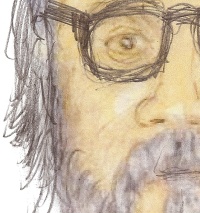
.
Henry Denander is an artist and a poet. He is the author of six chapbooks
of poetry and his most recent poetry collection The Accidental Navigator was published by Lummox Press in San Diego, California. His poetry and art have been published in many American books and magazines. Later in 2020 Pig Ear Press will publish his next collection of prose poems.
He was born in 1952 and shares his time between Stockholm, Sweden and
Hydra, Greece. For many years he worked in the entertainment industry, as the financial controller for a Swedish record company and later on as a business manager.
He was the editor of Kamini Press, a publisher of chapbooks of poetry and art. He has a website with poetry and art at www.henrydenander.com.
.
.
___
.
.
Michael L. Newell is a retired teacher who now lives in Florida
.
.
___
.
.
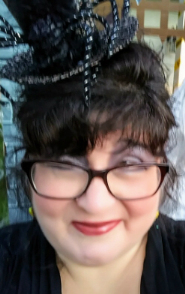
.
Felicia Sanzari Chernesky is a longtime editor, slowly publishing poet, and author of six picture books, including.From Apple Trees to Cider, Please!.and.The Boy Who Said Nonsense (Albert Whitman). She recently moved away from the masthead of an academic quarterly to work with people who want to share their stories, ideas, and poems in print. Find her online at.www.feliciachernesky.com
.
.
___
.
.
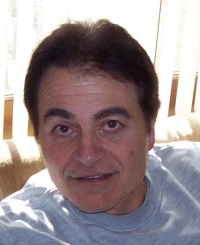
.
Michael Keshigian, from New Hampshire, had his fourteenth poetry collection, What To Do With Intangibles.recently released in January, 2020 by Cyberwit.net. He has been published in numerous national and international journals, including Edison Literary Review, Sierra Nevada Review, Oyez Review, Bluepepper, Tipton Poetry Journal, Pudding Magazine and has appeared as feature writer in over twenty publications with seven Pushcart Prize and two Best Of The Net nominations. (michaelkeshigian.com)
.
.
___
.
.
Terrance Underwood is a retired Rolls-Royce Service Engineer, veteran, College Grad (B.A. History) who has been listening to recorded jazz music since he was 5-6 yrs old. One of his first memories is listening to a 78 version of “Cherokee” by Charlie Barnett.
.
.
___
.
.

D. R. James has taught college writing, literature, and peace-making for 36 years and lives in the woods near Saugatuck, Michigan. His most recent of nine collections are If god were gentle (Dos Madres Press), Surreal Expulsion (The Poetry Box), and Flip Requiem (Dos Madres Press). His micro-chapbook All Her Jazz, whose title poem also appeared on Jerry Jazz Musician (10/19/19), is printable-for-folding at the Origami Poems Project. https://www.amazon.com/author/drjamesauthorpage
.
.
___
.
.

Russell Dupont is an artist and an author. His paintings, prints and photographs have been widely exhibited and are in a number of public and private collections, including the Print Collection of The Boston Public Library; The Art Collections of both Brigham & Women’s Hospital and The Dana Farber Cancer Institute. He is a former artist-in-residence at the Milton Art Museum.
He is also the author of two novels — King & Train and Waiting for the Turk; two chapbooks of poetry – Winter, 1948 and Establishing Home Plate; and two non-fiction chapbooks — Up in Wisconsin: Travels with Kinsley and There Is No Dam Now At Richford.
Visit his website by clicking here
.
.
___
.
.
Freddington works as a shipper/receiver in Toronto, Canada, and has been a lifelong jazz fan ever since he was “corrupted” as a teenager by Charles Mingus’ “Wednesday Night Prayer Meeting.”
.
.
___
.
.

Kristofer Collins is the publisher of Low Ghost Press and the books editor at Pittsburgh Magazine. He is the co-host of the Hemingway’s Summer Poetry Series. His most recent book.The River Is Another Kind of Prayer: New & Selected Poems was published by Kung Fu Treachery Press in 2020. He lives in Pittsburgh, PA with his wife Dr. Anna Johnson and their son Cassidy.
.
.
___
.
.

T..S. Davis is the author of Sun + Moon Rendezvous, a book of poems, and the former producer of the Seattle Poetry Slam. He’s published poems, essays, and nonfiction in a variety of magazines including Rattle, The Lyric, Bellingham Review, 14 X 14, Blue Collar Review, Amethyst Review, Henhouse, and Your Genealogy Today, among others. Mr. Davis is a retired Registered Nurse who lives in rural Arizona and writes creative nonfiction and Shakespearean.sonnets.
.
.
___
.
.

John Stupp’s third poetry collection.Pawleys Island.was published in 2017. His manuscript.Summer Job.won the 2017 Cathy Smith Bowers Poetry Prize and was published in August 2018. A chapbook entitled.When Billy Conn Fought Fritzie Zivic.will be published by Red Flag Poetry in 2020. He lives near Pittsburgh, Pennsylvania. From 1975-1985 he worked professionally as a mediocre jazz guitarist.
.
.
___
.
.

Dr. Roger Singer was in private practice for 38 years in upstate New York. He has four children, Abigail, Caleb, Andrew and Philip and seven grandchildren. Dr. Singer has served on multiple committees for the American Chiropractic Association, lecturing at colleges in the United States, Canada and Australia, and has authored over fifty articles for his profession and served as a medical technician during the Vietnam era.
Dr. Singer is the Poet Laureate of Old Lyme, Connecticut. He has had over 1,070 poems published on the Internet, magazines and in books and is a 2017 Pushcart Prize Award Nominee. He is also the President of the Shoreline Chapter of the Connecticut Poetry Society.
.
.
___
.
.
..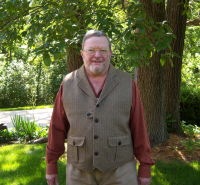
Alan Yount, 72, has published poetry for over 50 years. His poems have appeared in WestWard Quarterly ( featured poet for summer, 2018). Big Scream, Spring: the Journal of the E.E. Cummings Society, and Waterways.
He has been in three anthologies: Passionate Hearts, Sunflowers.and Locomotives: Songs for Allen Ginsburg. Alan was one of 31 poets, along with Gary Snyder and Lawrence Ferlinghetti. Also Chrysalis Reader.
Alan plays trumpet and has led his own dance band.
.
.
___
.
.
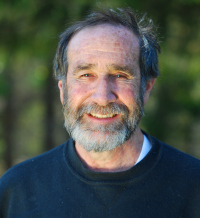 .
.
Joel Glickman taught music including jazz history and the jazz band at Northland College, Ashland Wisconsin, from 1974 until retirement in 2017, where he has resumed teaching about jazz again, part time. He has written and published poetry over a wide range of subjects. Primarily a classical clarinetist and folk singer-song writer and banjo player, his jazz and saxophone skills lag behind these. He resides in Ashland with wife Susan and their Bichon, Madeline.
.
.
___
.
.

Phil Linz was born in Brooklyn, NY and has lived in several cities across the United States. He began writing poetry in 1971 and is founder and publisher of Fierce Grace Press, which specializes in chapbooks, believing in the concept of “Publishing Under the Radar.”.His new book, The Chapbooks: Collected Poems, is available on Amazon.
Mr. Linz currently lives in Wilmington, DE; he may be reached at [email protected].
.
.
___
.
.

Phyllis Wax writes in Milwaukee on a bluff overlooking Lake Michigan. Her poetry has appeared previously in Jerry Jazz Musician and in many other journals and anthologies, online and in print. A Best of the Net and Pushcart Prize nominee, she has read in coffee houses, bars, libraries and on the radio. Her work has been exhibited with art quilts and weavings as part of poet/fiber artist collaborations. She can be reached at: [email protected]
.
.
___
.
.
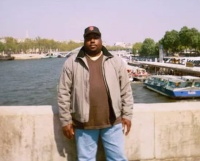
Erren Kelly is a two-time Pushcart nominated poet from Boston whose work has appeared in 300 publications (print and online), including Hiram Poetry Review, Mudfish, Poetry Magazine, Ceremony, Cacti Fur, Bitterzoet, Cactus Heart, Similar Peaks, Gloom Cupboard, .and .Poetry Salzburg.
.
.
___
.
.
Nathan Tluchowski is a 28 year old poet and jazz lover from Mingo Junction Ohio. Amateur player of tenor and alto sax as well as the overlooked percussion instrument: the typewriter. He plays Ornette Coleman for his girlfriend in the car when he’s irritated with her.
.
.
___
.
.
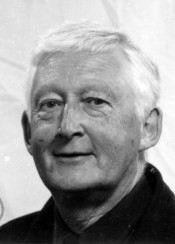
.
Robert Nisbet .lives in the UK, in rural Wales, about as far as you can get from London, travelling West. His poems have been published widely in Britain and the USA, including regular appearances in .San Pedro River Review, Panoply.and.Red River Review.
.
.
___
.
.
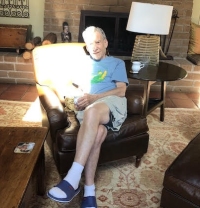
.
Gerard Sarnat MD is the author of four collections: Homeless Chronicles: from Abraham to Burning Man (2010), Disputes (2012), 17s (2014), and Melting The Ice King (2016). His work’s been widely published in magazines, including by Stanford, Harvard, University Chicago, Columbia, Brown, Review Berlin, New Ulster, Gargoyle, American Journal Poetry, Poetry Quarterly, Free State Review, Poetry Circle, MainStreet Rag, New Delta Review, Brooklyn Review, Los Angeles Review, San Francisco Magazine, and The New York Times.
.
.
___
.
.

.
Dan Franch, who grew up in the Chicagoland area, currently lives in Estonia. Living a life full of random experiences and adventures and people, he currently owns his own English & coaching company.
.
.
___
.
.

.
Patricia.Carragon’s recent publications include.A Gathering of the Tribes, Bear Creek Haiku, First Literary Review-East, Live Mag!, Muddy River Poetry Review, Narrative Northeast, Panoplyzine, and.Stardust Haiku..She has forthcoming work from.EOAGH, Nixes Mate, and The Paterson Review.. Her.latest books from Poets Wear Prada are.Meowku.and.The Cupcake Chronicles, and.Innocence from Finishing Line Press. Her first novel,.Angel Fire,.is forthcoming from Alien Buddha Press.
.
.
___
.
.

.
Aurora M. Lewis. is a retiree in her late sixties, having worked in finance for 40 years. In her fifties, she received a Certificate in Creative Writing-General Studies, with Honors from UCLA. .Aurora’s poems, short stories, and nonfiction have been accepted by The Literary Hatchet, Gemini Magazine, Jerry Jazz Musician, Persimmon Tree, The Blue Nib, Trembling in Fear, and Jitter Press to name a few...She has been nominated for two Pushcart Prizes as well as The Best of the Web. She has also won one poetry contest.
.
.
___
.
.
photo by Imogen Christine
.
Jordan Trethewey is a writer and editor living in Fredericton, New Brunswick, Canada. His frightening book of verse,.Spirits for Sale,.is available on Amazon. Some of his work can be read at Burning House Press, Visual Verse, CarpeArte Journal, Fishbowl Press, The Blue Nib, Red Fez, Spillwords, Nine Muses Poetry, and Jerry Jazz Musician. Jordan is an editor at Red Fez, and The Ekphrastic Review. His poetry has been translated in Vietnamese and Farsi..To read more go to: https://jordantretheweywriter.wordpress.com.
.
.
___
.
.

Ed Ruzicka has published one book, Engines of Belief, and has recently had his second, My Life in Cars, accepted for release later in the year. Ed’s poems have appeared in the Atlanta Review, Rattle, the New Millennium Review as well as many other literary journals and anthologies. Ed is an Occupational Therapist who lives with his wife, Renee, in Baton Rogue, LA. More at: edrpoet.com
.
.
___
.
.
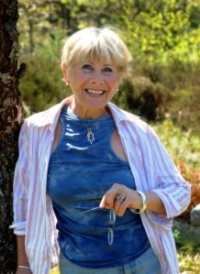
Arlene Corwin has been a jazz musician since 1951, and continues to work as a pianist/singer in Sweden, where she now resides. Her mother owned a jazz club with Slim Gaillard in Hempstead, Long Island called The Turf. She has published 17 books of poetry.
.
.
___
.
.

Paula Puolakka (1982) is a Beat poet, writer, and MA (History of Science and Ideas.) In 2019, she was awarded the second prize in Dreamers & MLK poetry contest (NC.) She also gained merit from the contests held by The Finnish Reserve Officers’ Federation,.Tiny Spoon, and Woody Guthrie Poets (OK.) Between April 2019 and early February 2020, she was 22 times the winner of the daily poetry challenge held by Poetry Potion (South Africa.)
.
.
___
.
.

.
R. Bremner has been writing since the 1960’s. He appeared in 1979’s first issue of Passaic Review, along with Allen Ginsberg and Rich Quatrone. International Poetry Review, Oleander Review, Paterson Literary Review, Red Wheelbarrow, and.Shot Glass Journal.are a few of the journals he has been in. Ron has won Honorable Mention in the Allen Ginsberg Awards, and has published six print books, including.Ektomorphic(Presa Press), and thirteen eBooks.
.
.
___
.
.
Julianne DiNenna writes from Switzerland and Italy. Her poems and short stories have appeared in: Months to Years; Adanna Literary Journal; Harbinger Asylum; Gyroscope Review; Italy, a Love Story; Susan B & Me; Grasslands Review; Unruly Women Writers (forthcoming), among others. She has won two literary prizes for poetry in Switzerland and was semi-finalist in BrickHouse Book’s Wicked Woman Book Prize.
.
.
___
.
.
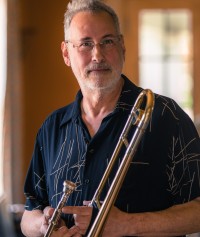
.
Jazz.Poet filmmaker Michael Vander Does is from Columbus, Ohio. He performs with The Jazz Poetry Ensemble (poetry/trombone/leader) (www.makejazznotwar.org). His poetry is informed by avant-garde jazz.
.
.
___
.
.
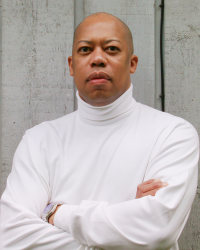
.
Robin Ray is the author of .Wetland and Other Stories .(All Things That Matter Press, 2013),. Obey the Darkness: Horror Stories, the novels .Murder in Rock & Roll Heaven .and .Commoner the Vagabond, and one book of non-fiction, .You Can’t Sleep Here: A Clown’s Guide to Surviving Homelessness. .His works have appeared, or is appearing, at . Red Fez, Scarlet Leaf Review, Neologism Poetry Journal, Spark, Aphelion, Bewildering Stories, Picaroon Poetry, The Bangalore Review, The Magnolia Review, .and elsewhere.
.
.
___
.
.

.
Susandale’s poems and fiction are on WestWard Quarterly, Mad Swirl, Penman Review, The Voices Project, and Jerry Jazz Musician. In 2007, she won the grand prize for poetry from Oneswan. The Spaces Among Spaces from languageandculture.org has been on the Internet. Bending the Spaces of Time from Barometric Pressure is on the Internet now.
.
.
The spring collection is scheduled to be published sometime in May. If you would like to submit your poetry for consideration, please visit this page. Ideally submissions will be received by approximately April 15, 2020.
You can read the fall, 2019 collection by clicking here
.
.
.
.
.
.







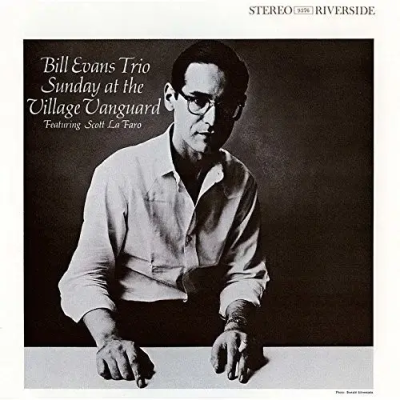

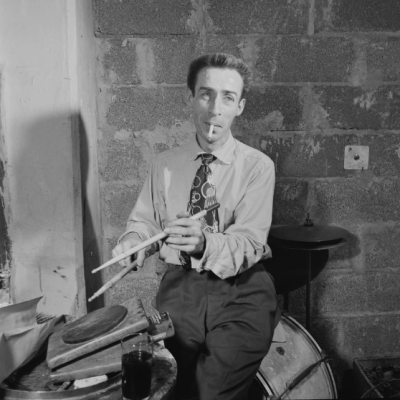


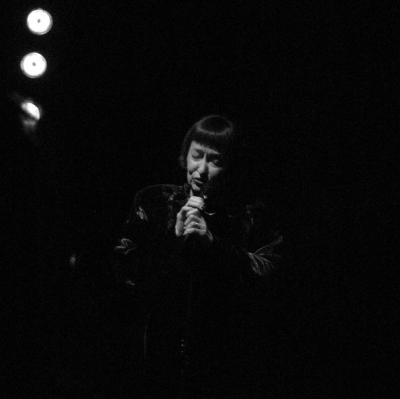




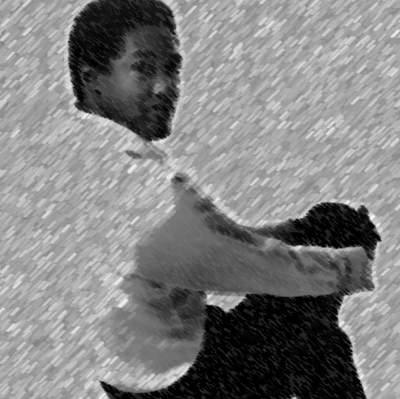

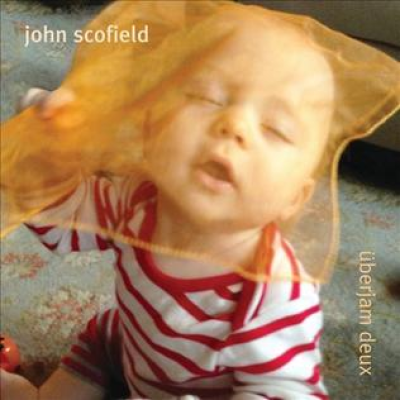





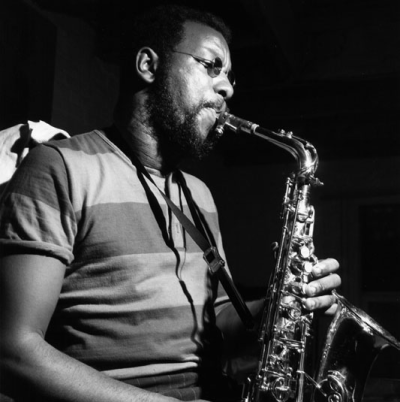

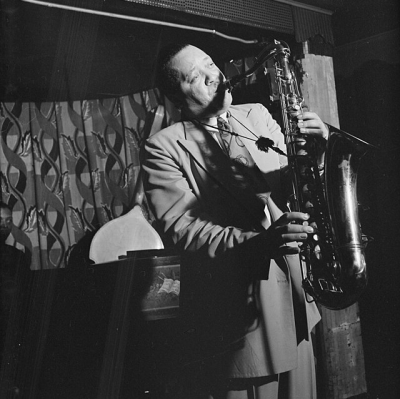




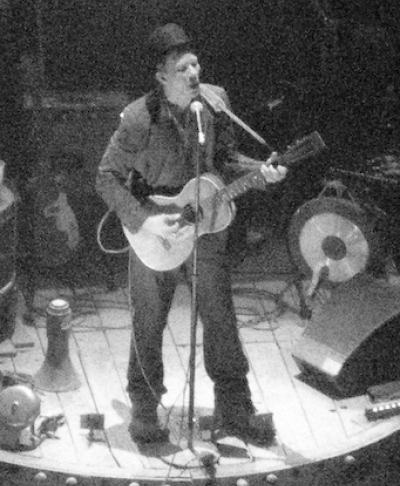









Another great issue with awesome poets. I also am thanking Alan Yount who’s wonderful poem A Trumpet Break Through: Which Can Happen With Any Horn Or Ax is dedicated to my grandson Domonic and me, Alan blew me away.
Hi Aurora: I was inspired by you two, wanting to play so much! Best Alan
Thank you so much, Alan, one of the highlights of my life.
The collection looks beautiful!
Thank you for your effort and hard work, Mr. Maita.
I took the liberty (the same way I did with the Fall collection) to randomly choose a few poems and give them some positive feedback. (Maybe somebody else can continue.)
The Poems:
Miles and Miles by Phyllis Wax
One word: brutal. (In a good way.)
Blue Train Scenario by Jordan Tretheway
It’s great when – in such a long and flowing movie-like poem – one word steals the show and creates a world of its own: SNAPS.
The Inflated Tear by Michael Vander Does
A softly flowing poem with a deep message. I love the first line.
It Just Is by Susandale
The poem creates a life-like vision of Lea performing. I love the word “bravado:” it reminds me of the song by Kirin J. Callinan.
Art Is Always by T.S. Davis
An introduction to art, almost. Very rich vocabulary.
That was it.
I wish you (all) the best day of your life.
With best regards,
Paula
The poems in this collection, each and every one, are a joy to read. I lack the energy to respond to every poem and every poet, so I chose 15 poems, more or less at random, to respond to, while recognizing that this is shortchanging many good poems and poets.
“Jazz in Winter,” by Felicia Chernesky, uses sound with great skill — rhyme and alliteration fill the poem’s landscape and soothe the ear.
“Life Music” by Michael Keshigian is filled with the many details of life as they move past, around, and envelop the narrator. The poem is a psalm celebrating the richness of everyday life. The poem sings as it celebrates.
Terrance Underwood’s “Staccato Flight” is wildly imaginative and musical, and has a brilliant closing line.
Russell Dupont’s “Syncopation” is filled with intriguing and well-observed details, and is structured as carefully as a first-rate short story.
Freddington’s “A Meticulous Artist” is a lovely, thoughtful tribute to one of my favorite musicians.
John Stupp’s “Now That Our Hero Has Come Back” manages to pay tribute to both Bird and the working man — two motifs that frequently appear in the fine work of Mr. Stupp.
“A Trumpet Break Through: Which Can Happen With Any Horn Or Ax,” by Alan Yount, details the hard work necessary to be a competent musician, and the physical toll of acquiring command of one’s craft.
Joel Glickman’s “Tenor Jam” is great fun, carefully observed, and is a damned fine poem.
Russell Dupont’s “St. Louis Blues” is a very skillful poem that repays rereading.
“Barry Harris at Carnegie,” by Phil Linz, is a poem that is jazz in its own right. Clever and fun.
Robert Nisbet’s “Good Luck” displays his usual elegance and insight into the human heart.
Erren Kelly’s “Coffeehouse Poem #442” is up to his usual high standards, has a musical flow to the narrative, and shows his keen eye for meaningful detail yet again.
Dan Franch’s “Fusion” merges jazz and love in a skillful and delightful way.
“Love Letter,” by John Stupp, is another of Mr. Stupp’s skillful mergers of musical knowledge with a careful eye for human feeling and behavior.
Ed Ruzicka’s “Misty Roses” is both paean and elegy for the great folksinger Tim Hardin. The poem displays Mr. Ruzicka’s gifts for passionate outpouring and compassion for others.
Another terrific issue of exceptional poetry and art. I’m honored to be part of this issue. Kudos to Joe Maita for all his quality work and to all the fabulous contributors!
Such great work! I want to be a sideman in this band. Like Dave Frishberg said “…I want to spend all all my time/with music and musicians/I wanna go out and grab a smoke/on intermissions…”
I’ll read one poem at a time. The art is wonderful throughout; it’s soft and easy on the eye. And So Jazz Came To Me: a fun study from beginning to end in the art of jazz
Hosannah To the Music of the Streets: a mysterious poem about the night mystery of the streets. My favorite line being “those who hear and see what we don’t
Jazz In the Winter: the music that melts the long white
Art Is Always: and comes at a price
Blues: such a caring poem: observant and compassionate